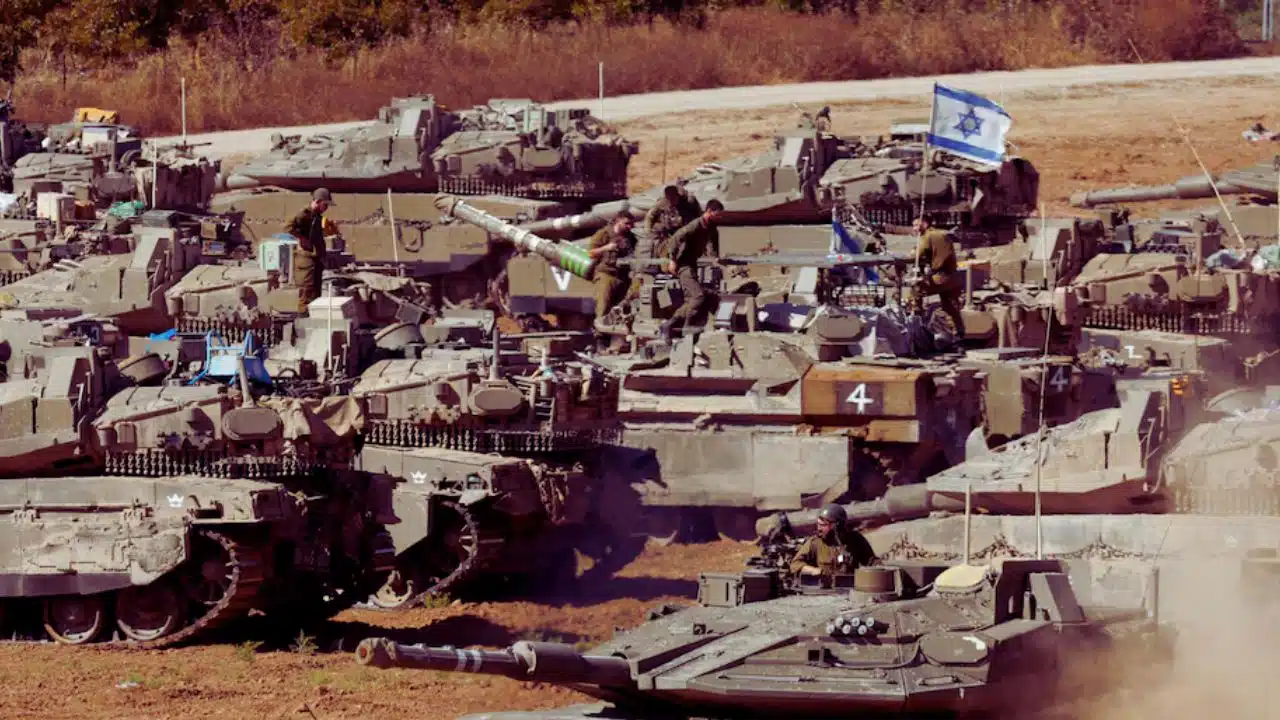Israel’s military has announced the capture of the Philadelphi Corridor, a crucial area along Gaza’s border with Egypt near Rafah.
This strategic move, aimed at cutting off smuggling routes used by Hamas, marks a significant escalation in Israel’s ongoing offensive in Gaza.
The seizure of this narrow strip, which has historically been a hotbed of conflict, highlights the intensifying battle in the region and raises concerns about the broader implications for Israeli-Egyptian relations and the humanitarian crisis in Gaza.
Control of Philadelphia Corridor
The Philadelphia Corridor, a narrow strip about 100 meters wide, runs the 14-kilometer length of Gaza’s border with Egypt and includes the vital Rafah crossing.
The capture of this corridor marks a significant escalation in Israel’s offensive in southern Gaza. This move is aimed at cutting off smuggling tunnels used by Hamas to transport weapons and supplies.
The Israeli military reported discovering 20 smuggling tunnels and tens of rockets ready for launch in the area.
Implications for Israeli-Egyptian Relations
Israel’s advance towards the Egyptian border has raised concerns in Cairo. Egypt has protested Israel’s actions, especially the capture of the Rafah border crossing, the only crossing between Gaza and Egypt.
The corridor is part of a larger demilitarized zone established under a peace accord, which restricts the number of troops each side can deploy.
Egypt has warned that increasing military presence in this strategic area could violate the 1979 peace agreement between the two countries.
Intensified Fighting in Rafah
The capture of the corridor comes amid intense fighting in Rafah, where Israeli forces have been expanding their operations.
The military confirmed that additional troops have been deployed to the area, contributing to the ongoing conflict.
The fighting has displaced hundreds of thousands of Palestinians, exacerbating the humanitarian crisis in Gaza.
Reports indicate that recent violence has resulted in dozens of Palestinian deaths, including those of displaced individuals sheltering in camps.
Israeli Military’s Broader Objectives
Israel’s National Security Adviser, Tzachi Hanegbi, indicated that the conflict with Hamas is expected to last through the end of the year.
The primary goals are to dismantle Hamas’s military capabilities and secure indefinite control over Gaza for security reasons.
The prolonged conflict has already resulted in significant casualties and destruction, with Gaza’s Health Ministry reporting over 36,000 Palestinian deaths since the beginning of the war, although this figure includes both fighters and civilians.
International Reactions and Humanitarian Concerns
The international community has expressed deep concern over the escalating violence and its humanitarian impact.
The United Nations reports that the fighting in Rafah has displaced over a million people. Efforts to deliver humanitarian aid have faced significant challenges, including the damage to a floating pier used for aid deliveries due to bad weather.
The United States and other allies have urged Israel to exercise restraint, particularly in Rafah.
The Biden administration has warned that a full-scale offensive in the city would cross a “red line.” Despite these warnings, Israel continues its operations, insisting on the necessity of dismantling Hamas and maintaining security control over Gaza.
Future of Gaza and Israeli Strategy
The conflict raises questions about the future governance of Gaza and Israel’s role post-conflict.
The United States has called on Israeli Prime Minister Benjamin Netanyahu to outline a clear postwar vision for Gaza.
Israeli officials have emphasized the need to prevent a prolonged military presence in the territory, yet the challenges of achieving their military objectives while avoiding an indefinite occupation remain significant.
The war, which began on October 7 with a surprise attack by Hamas on southern Israel, has plunged the region into a protracted and deadly conflict.
As Israeli forces continue to battle militants and secure strategic areas like the Philadelphia Corridor, the humanitarian and political implications of the war persist, drawing international scrutiny and calling for a resolution.









































